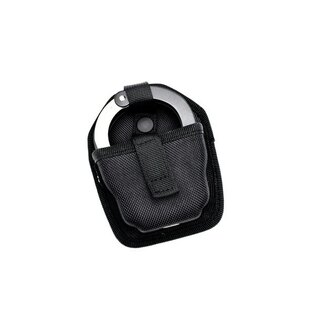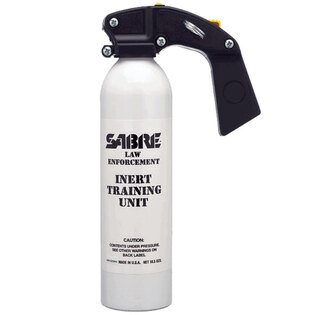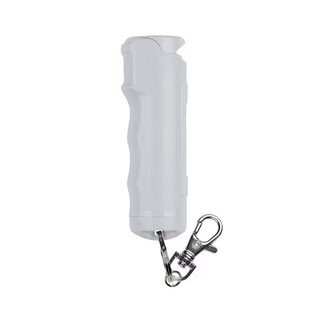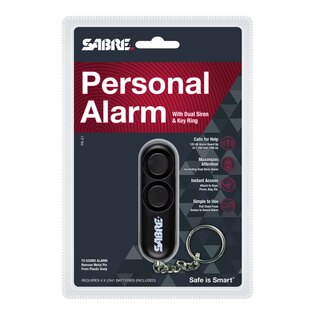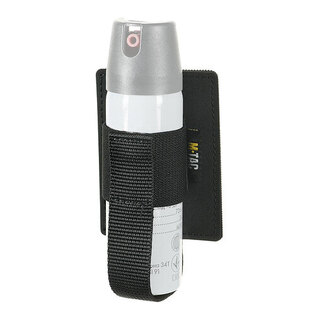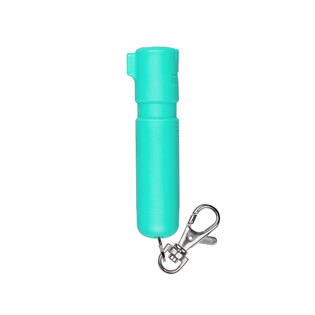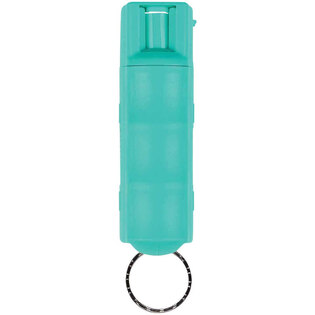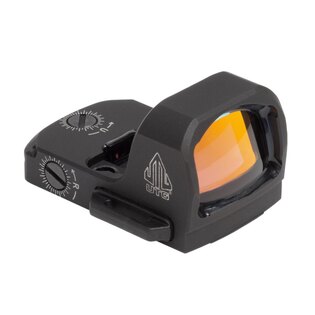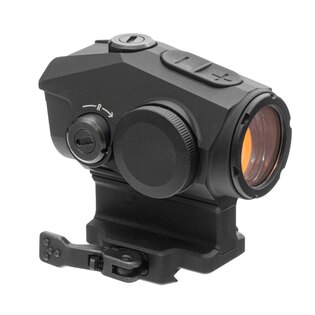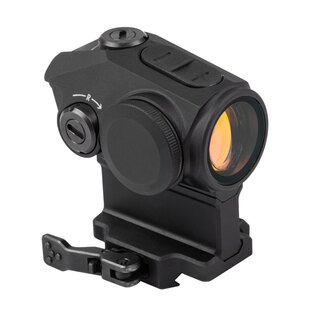Self-defence part 2 - Tips for effective self-defence
After reading the last article we should be quite clear on what necessary defence is. We know what self-defence is. We know how it is characterized. We know which legal provisions stipulate it and according to which provisions the court acts. We’ve covered some good advices, but I still don't think it was enough. This is why I would like to start the second part of this series, where I will focus on the principles, tips and rules of self-defence. Sure, self-defence has no rules, it's always just a matter of getting out of the situation alive and well, using both escape and the necessary defence. But don't forget our definitions and examples from the first article. Defending yourself may as well send you behind bars. One needs to keep the head cool and think. To get in the right mode, let's imagine a model situation that will help us a little.
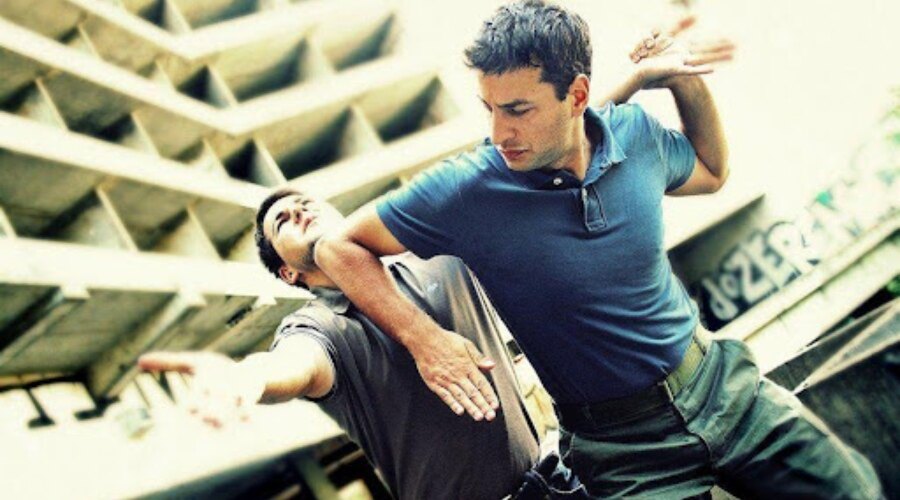
As with my other articles, I would just like to point out that in many ways the following is my own experience or opinions taken from qualified people. Of course, there will be readers who may disagree with some of the opinions, but that's quite normal. You can always send me a comment, I will be happy to discuss it with you.
Self-defence cannot be taught. It’s not area integrals, it's not chicken curry nor driving. It’s something completely different. The right mind set, preparedness, self-confidence, presence of mind and many many other factors are needed for a quality self-defence. But we will get there.
Examples
A party in a bar
A great Friday evening started as expected. You met with a bunch of friends in a restaurant and started off with a nice meal. Engaging conversation and good mood led you to a local bar where alcohol flows like a river and the mood gets better and better. Slightly after midnight the bar is already fully occupied which has lured in a few aggressors who look for trouble. As you drink, you can sense that somebody is watching you over the bar counter. That provocative look is not entirely pleasant, so you try to ignore it. A half hour later it already annoys you and you ask the dude in question why he's starring at you. This sentence is exactly the catalyst the guy was waiting for, so he asks you what your problem was. You tell him he's starring at you and a few sentences later he wants you to go out with him to settle the dispute. What‘s next?
Analysis of the situation:
There's nothing wrong about going for a few beers with your friends. Unfortunately, nobody is able to dictate the composition of people in the bar. Unfortunately, there's always that one guy who’s come for his daily portion of conflict. Maybe he didn’t have a good day at work, maybe he's angry with his wife, maybe it’s just the way he is. I always advise everyone to think ahead. The right psychology and state of mind are the key components of self-defence. Self-defence actually starts right in the moment you notice that somebody’s starring at you. The best thing to do is to go some place else, a different bar, or just ignore the moron who seeks your attention.
The problem is, if he really wants it, he will get it. So it is quite possible that sooner or later he will come and provoke you anyway. I beg you, don’t let him do that. Remember to always have enough witnesses around you who can testify that you were the victim, not the aggressor. Don’t react when he asks you to go out. Here you must be aware of the risk to which you will voluntarily expose yourself. If it came to a fight in the end, the whole situation may not be eventually classified as self-defence and you will be in trouble.
Follow up:
You did the right thing and the situation calms down. The aggressors were seen out by the bouncer and you crack on with the original plan. A while later you decide to go home. You say your friends good bye. On the way home you hear footsteps following your for good several hundred meters. When you look around, you see the aggressors from the bar. What next?
Analysis of the situation:
What do you think is the best course of action in this situation? Fighting back before you’ve been exposed to an actual threat or attacked is a non-sense. Much better is not to walk home alone or call a taxi which will drive you straight to your door. It's a common practice for aggressors to not take a refusal as the end. It’s the other way round, it may actually encourage him to get what he wants. So what will you do when you find yourself in such a situation? The best way is to shake off the aggressors. It's not easy, but at the same time it’s not smart to lead them all the way to your home. If you know the area, it may be a good idea to go to the nearest taxi stand and just take one. Or you can pick up the pace and run away. You can’t get it wrong with it. It’s not cowardly to run from a fight you would lose anyway. Nobody will come visit you in the hospital and tell you how brave you were, because you faced the threat when you could have solved the situation in a different way. They won’t tell you it’s okay to have a broken jaw and a ruptured spleen. At the best.
This might be a model situation, but it’s based on real life examples which happen every day, every minute. In this situation, several bad decisions were made that could lead to fatal consequences. The following tips and rules will help you prevent similar situations and tell you how to react when you have to.
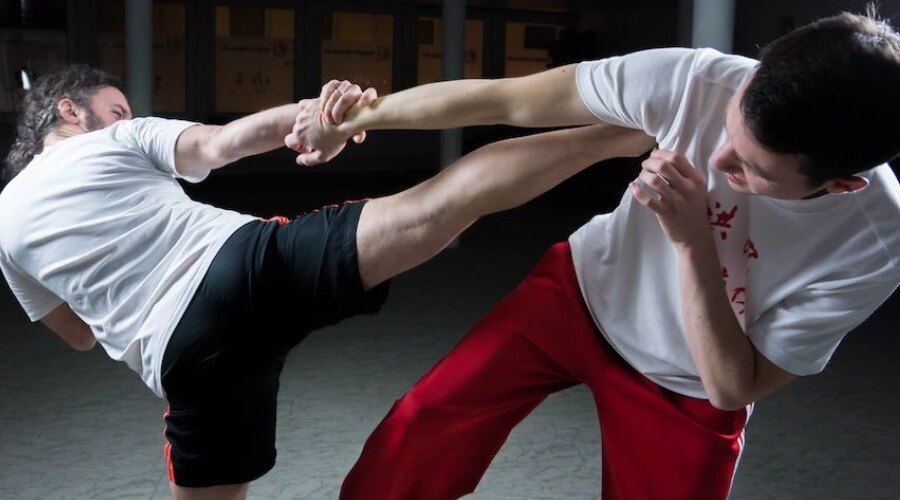
11 tips and truths about self-defence
1. Preparedness is key
Boy scouts know well, why they’ve chosen the motto: “Be prepared”. Situational awareness, attention and presence of mind are qualities and skills that are considered the basis for self-defence. Some time ago, as I was learning to shoot and committed fully to improving some of my skills, I read a book by an expert in defence with a weapon. I have mastered his practices, as have many of my friends. He practically describes four elementar statuses that he invented for various situations. We can colour code them based on their importance.
White status (chilling - all's good)
This is the basic status. I am in this status when I’m in my living room, reading a book, watching a movie with my girlfriend or doing similar activities. In this status I practically don’t expect or anticipate any danger. If I was attacked in this status, I would be very surprised, and for the first few seconds I would be struck with surprise as the brain struggles to level with the situation and get back on track.
Yellow status (higher situational awareness, I’m wary but calm)
What would I compare this status to? Imagine you are walking on a road, it’s a bit dark and you decide to go through the park. Or you are simply in the bar among people you don’t know, in an unknown environment and you come to realize that there aren’t just fairies and unicorns in the world. That it's nice to love yourself, but that there are people in the world who don't share this view. In yellow mode I’m watchful, alert. I try to be aware of my surroundings, I know who is behind me, who is around me and that I might be in a potential danger. Yet I remain relaxed and not give away any visible signs of change from the white status.
Amber status (danger is here)
As the situation gets more serious, the yellow changes into amber. I perceive a certain risk which has arisen. I noticed a threat and focus on it. It's very important to maintain situational awareness at all times. For example, if someone starts attacking me verbally, I perceive him as a major threat. Nevertheless I still look around to make sure nobody else is trying to walk around me. Amber mode may be a bit more demanding, but it’s necessary to stay in it as long as required. Also decide your turning point. For example, if he takes another step towards me or pushes at me, I will turn into red status.
Red status (conflict)
If a criterion that I set in the amber status have been met, I switch into the last mode - the red mode. The consequent actions may either be physical or psychological. It depends on the situation. Nevertheless, if the conditions for a necessary self-defence have been fulfilled, it’s time to act. These statuses have helped me many times in situations where I would not otherwise be prepared. At the same time, the moment I carry a weapon, I am automatically in the yellow status.
2. Avoid risk
I’ve already tried to talk about this in the first part of this series. Nevertheless, this is a very important rule which needs to be followed. Generally speaking, the best defence against dangerous situations is prevention. That being said - if I go somewhere, I always tell someone where I go and with whom. I tell it my parents, my partner or even friends. It's practical, that someone knows at all times where you are going and when you plan on getting back. If you know you won’t make it on time, it’s good to inform about it. In case you were attacked or something else happened to you, these people will be able to take appropriate steps.
If you go somewhere to have fun, or even when you go to or from work at night, think about planning. It never hurts to avoid going through a suspicious park, narrow passages or near a place known for the presence of troublemakers. I know it's not possible to solve everything 100% in this manner, but you should at least try. It’s also much better to use public transportation or taxi.
Maybe this will sound ridiculous to you, but I always walk on the outer side of sidewalk. This way I always see around the corner when I need to make a turn. Thanks to this, I don’t bump into anyone and am able to plan ahead.
3. Be aware of your options
I personally never go out empty handed, as I say. I always carry on me at least one knife and usually a Glock 17 on my waist, which might not be the best option for everyone. Simply put, it's important to be aware of your options. There is always a chance for another solution, de-escalation, escape, evasion, but when shit hits the fan, you need to act. You always need to know where your strengths are. You’re fast, use it. You’re strong, have an umbrella in your hand, bag, backpack? Use it. Keep monitoring your surroundings and consider options.
4. Good posture is half of victory
If it should come to a physical conflict, remember your posture. Practically, at the beginning of any verbal conflict, it is necessary to think of a few basic and important rules:
The longer the distance, the better
It's always important to keep the aggressor at bay. At least 120 centimetres. This distance will make sure you are safe from a potential lunge. If the assailant wanted to attack you, he would need to take a step towards you, which makes it much easier to react than countering a fast and unexpected hook or a head-butt. At the same time he won’t be able to grab you and the advantage will be at your side.
Know where you back up to
During a fight, it's critical to maintain situational awareness. Choose the right spot. Never have your back against the wall. Of course, no one will be able to get behind you, but if you wanted to do a quick escape manoeuvre, you'll probably end up hitting the wall with your forehead. That's why you need to keep monitoring your surroundings and make sure the area around you is as safe as possible.
Everyone in front of you
It may so happen that there will be more aggressors, not just one. Once I was calming down a conflict with one really skinny guy against five hockey players. Well, the skinny guy was actually the aggressor, but I tried to calm the situation down. I attracted all the attention on me while keeping the whole hockey team in front of me. In amber mode, I didn’t let any of them get behind me. As it could’ve been the last thing I would ever have done.
Stability and certainty
A good posture ought to be stable and give you certainty in every move. Knees slightly bent, stance wide enough, feet approximately one foot apart. Arms near your body, no flailing, you’re not at a techno party.
5. The assailant never plays fair
Do you know what's the big trouble in any attack? Usually you don’t have as much control of the situation as you would like to. Only the assailant knows when and how he attacks. What kind of strike he’s going to use, what kind of weapon, will he use an ambush technique, direct attack? So you are at a disadvantage from the very beginning. In addition, the laws may be quite frail and you may never react disproportionately.
It is also a big mistake to assume that people are kind and will behave fair and with decency. The USA are more likely to become a province of North Korea than assailant to fight fair. This will obviously never happen. He wants to hurt you, rob you, mutilate you, rape you, kill you, and God knows what else and in what order. And he will do it by any means necessary, he's acting in an adrenaline rush and never, never thinks reasonably.
6. Never fight fair
Please, if it ever comes to a self-defence situation, never fight far. This is the biggest mistake one can make. As I described above, an assailant never fights by the rules. Self-defence is a fight for your life, the life of your relatives or another person. You must keep them safe at all costs. Splash the assailant with pepper spray as if he begged for it. Smash his head with a purse or backpack, charge him with a stun gun, simply speaking neutralize him and make for safety. Strikes to sensitive parts are effective too. Hit his eyes, nose, neck, slap his ears, solar plexus, kick him in the groin or step on his knee. If you need to defend yourself, then do it! If possible, use your surroundings and the things it offers to your advantage.
7. Believe in yourself
You may not find this point useful, but it is. When an emergency situation occurs, everything will depend just on you. If you start thinking the fight is lost, it will be. In such a moment, everything depends on you and on you alone, nobody is going to help you. Trust in your instincts, clear your mind and act. If the assailant surprised you, surprise him too. Be decisive, fast, aggressive, yet level-headed and merciless. The assailant has the advantage of surprise as they usually attack first. What they don’t expect is a quick and hard counter-attack. Here you are fulfilling the necessary defence and you can afford to cover the attacker with a storm of blows, kicks into the groin and other attacks. A loud scream works too. It will attract some attention and surprise the assailant. It's proven that if the attacker is surprised in such a way, he won’t be able to carry on his attack for a moment. Also forget that being passive will solve the situation. A long time ago, someone told me he didn’t fight back not to get the assailant mad. I won’t even comment on that.
Always rely on yourself and yourself only. Clinging to the wish that somebody will help you might be your fatal mistake with painful consequences. People usually just mind their own business. Why would they voluntarily expose themselves to danger?
Personally, standing in front of those five hockey players back then, I was scared, I would be crazy if I wouldn’t have been. But I didn’t show it. I stood in front of them and began to communicate the whole situation psychologically. They saw in me that I was confident, that I was determined, and that I wouldn’t give up without a fight. This undermined their self-confidence. I was also communicating thoughts like: I didn’t come here to fight, I just want to enjoy this evening and go to sleep, so don’t get crazy guys. Between you a me, it was a lost fight. I knew that if I couldn’t de-escalate the situation, it would have ended up really badly. In my head, I was pondering who would attack first and how I would react to it, how much time it would take for people who could hypothetically come help me to get to me and so on. By the way, I was relying on the bouncer, but when he saw the situation, he locked himself up in the changing room.
8. You’re not a coward if you run away
I see this a lot. When I discussed with people their life experiences, cases, situations, I asked many times - why didn't you just leave or run away?
I was getting answers like: I’m not a coward, I don’t deal with situations in this manner, what would I get from it, and so on. Personally? If I happen to be in such a situation on my own, nobody depends on me and I have assessed the situation to be lost with possible fatal consequences, I prefer to go for a psychological de-escalation or making a run for it. It’s the easiest solution which many situations offer.
Moreover, if you start to fight back, you might get overwhelmed by adrenaline rush and exceed the limits of the right of self-defence which may then turn into attack and lead to harming the assailant. If the government got one cent for such a case, our national debt would be zero by now.
9. Use psychology
Many times, I have mentioned a de-escalation or degradation of a situation. It's actually a powerful weapon which may lead to your victory. Assailant never thinks rationally. In that moment, he doesn’t understand that when the police steps in, he may end up being a nice Christmas present for inmates in the local jail. If it's possible, it’s always better to calm the situation down with an apology, even though you didn’t do anything. Buy them a round, go to a different bar, simply communicate and win by doing it. If it's going from bad to worse, it's never too late to remind the assailant about cameras and witnesses who will confirm who started the fight, and even if the assailant won, his adventure will have unpleasant consequences. This phase, just like any other one, depends on the right assessment of the situation.
10. Don’t forget about witnesses
Word against word situations are quite difficult and unpredictable. Make sure that when you start solving a situation, there are enough witnesses around you. It can be people, but also cameras. Their records will come in handy during police questioning.
11. Think of others
I’ve spoken here about running away, de-escalation and many other things. But everything may change with one variable, a person who depends on you. If you are with your spouse, girlfriend, kids, family or best friend, you can’t just run away. It’s simply not possible. Personally I find it my responsibility to help my relatives to get to safety or I act in such a way to enable them to get to safety. As the saying goes: it's better to be judged by twelve than carried by four. And it is better to explain to the police why I had to use a weapon in accordance with the law than to explain to my father-in-law why his daughter ended up in hospital.
So what do you think? It's not easy, is it?
I hope I didn’t overload you or scare you with all these information. Unfortunately, self-defence is a complex system combining various skills with a good portion of luck, for which we’ll be grateful many days after an unpleasant situation.
In this part, we talked about tips and rules that I consider my own and use them every day. I believe you will find at least some of them helpful. In next article we will speak about what is a right of self-defence and what isn't.
Readers are further interested















































































































































